
May 30
1910 Volkishness: Philipp Stauff writes a letter to Heinrich Kraeger in which he mentions the idea of an anti-Semitic lodge with the names of members kept secret to prevent enemy penetration. Stauff is convinced that the powerful influence of Jews in German life can be understood only as a result of a widespread Jewish secret conspiracy, and such a conspiracy can best be combated by a similar anti-Semitic organization. (THP)
1913 Countdown to World War I: The First Balkan War ends:
On this day in 1913, a peace treaty is signed ending the First Balkan War, in which the newly aligned Slavic nations of Serbia, Montenegro, Bulgaria and Greece had driven Turkish forces out of Macedonia, a territory of the Ottoman Empire located in the tumultuous Balkans region of southeastern Europe. [For further details, Click here]

1915 World War I: Various:
List Regiment: Gefreiter Adolf Hitler's 16 Reserve Infantry Regiment occupy a position at Fromelles—pictured above in a drawing by Hitler—which is on a level field with water channels, willow trees and willow stalks, in the distance towards the enemy lines lie an insignificant wood with barbed wire entanglements. Under the direction of their defense-minded commander, Lieutenant General Gustav Scanzoni von Lichtenfels, the regiment works ceaselessly day and night to further fortify their position at Fromelles while fighting off repeated assaults by the enemy. [For further details, Click here.]

USA: White House advisor Colonel Edward Mandel House confides in his diary that he has concluded that war with Germany is inevitable, adding that he will persuade President Wilson to act.
1916 World War I: Various:
War at Sea: The German High Seas Fleet under Admiral Reinhard Scheer puts to sea, led by Hipper's scouting fleet—40 fast ships with a nucleus of five battle cruisers. Following well behind is the main fleet of 59 ships.
Alerted by German radio chatter, the British Grand Fleet under Admiral Sir John Jellicoe heads toward the Skagerrak. Leading is Beatty's scouting force of 52 ships, including six battle cruisers and four new super-dreadnoughts. Following behind is Jellicoe's main fleet of 99 vessels. Overall, the British have 37 capital ships: 28 dreadnoughts and 9 battle cruisers; the Germans 27: 16 dreadnoughts, six older battleships, and five battle cruisers.
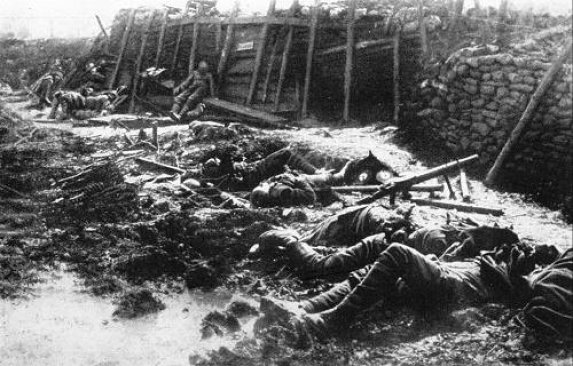
List Regiment: Gefreiter Adolf Hitler endures trench warfare in Flanders (Artois) with 3 Company, 16 Reserve Infantry Regiment. [For further details, Click here.]
Death: Robert Digby—shot by a German firing squad:

Digby was the last of a quartet of English soldiers who had been part of the British Expeditionary Force . . . in 1914. Digby and his mates—Thomas Donohoe, David Martin, and William Thorpe—were stranded behind lines. [The inhabitants of] Villeret took them in and changed their uniforms for peasant clothes while they worked the fields and tried to keep their heads down.
"Every inhabitant of Villeret knew of the British soldiers in their midst but none breathed a word, although the Germans had threatened to execute anyone harbouring enemy fugitives," writes Ben McIntyre, who wrote the book A Foreign Field on these men. "Even when food ran low and German troops were billeted on every house, the secret was kept safe. It was an astonishing act of collective bravery."
To the west, in trenches the men could not pass, the war ground uncounted souls into horsemeat.
Digby became the lover of a village girl, and fathered a daughter by her. This perilous idyll under the very bowers of hell could not last long. The Brits were mysteriously betrayed, and arrested by the Germans in May 1916: all save Digby, who escaped out the window of a barn.
Donohoe, Martin and Thorpe [had been] shot as spies on May 27.
After a week on the run in the nearby woods, the mayor of Villeret found Digby, and told him that the Germans were threatening to execute the villagers unless he turned himself in to face his comrades' fate. Digby did so.
McIntyre's book . . . explored the village of Villeret and the life of Digby's daughter Hélèe Cornaille-Digby: an infant when her father was shot; an octogenarian when McIntyre met her.
The enduring mystery of the place, at least to McIntyre as an outsider, was the unanswered question of who betrayed the English. Was it a jealous lover? A disapproving family? A fearful neighbor?
Years after the publication of the book, McIntyre (so he thinks) accidentally solved the mystery.
1917 World War I: List Regiment: Gefreiter Adolf Hitler's 16th RIR redeploy east of Douai for a period of rest which will extend until June 24. [For further details, Click here.]
1918 World War I: Various:
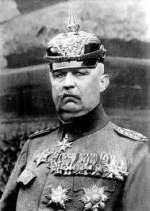
The American Third Division holds the bridges at Chateau-Thierry, 44 miles from Paris, then counter attacks with the assistance of the rallying French troops, driving the Germans back across the Marne. The American Second Division checks the German attacks west of Chateau-Thierry.
List Regiment: May 30-June 2: Originally held in reserve, Gefreiter Adolf Hitler's 16th RIR join German forces overrunning the Marne near Chateau-Thierry. The Germans advance 32 miles in three days and come within 50 miles of Paris. The List Regiment loses 59 men on the first day of fighting alone. Balthaser Brandmayer:
The enemy is scarcely able to defend himself. Up-hill, down-dale, through think and thin, we follow on behind his fleeing heels. Trench warfare seems to have been overtaken in full flood by a war of movement . . . .
With Hitler, I search for companies that are advancing surprisingly quickly. Searchlights start up and plunge path and wood into an abundance of glaring light. The Froggie [Franzmann] had in between times reassembled. He desperately resists our assault. We run through a raging fire. Fragmants of exploding shells scatter among us. Their flat trajectories drive us to distraction.
1919 Various:
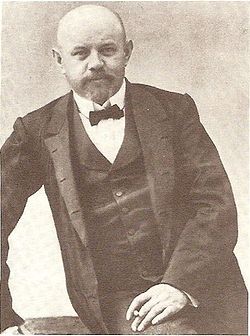
Volkishness: Dietrich Eckart gives a lecture to the Thule Society at the Four Seasons Hotel. The Thule rooms are a haven for many völkisch activists from November 1918 to May 1919. Thule guests include Gottfried Feder, Alfred Rosenberg, and Rudolf Hess, all of whom will achieve prominence in the Nazi Party. (THP)
Colonel Edward Mandel House: President Wilson's chief advisor, meets in Paris with a group of American and British industrialists to discuss the founding of an institute for International affairs.
1932 Weimar: Franz von Papen:

President Hindenburg ousts Heinrich Bruening, and appoints von Papen Chancellor. [For more detail, see June 4.] Papen is quickly censured by the Center Party, having promised Monsignor Kaas, only hours before, that he would not undertake the formation of a new government.
1933 Holocaust: The Council of the League of Nations censures Germany for its anti-Jewish actions in Upper Silesia.
1937 Spanish Civil War: Anti-Franco Spanish forces bomb the German battleship Deutschland off Ibiza, killing 26 and injuring 71.
1938 Various:
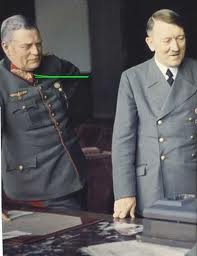
Countdown to War: Case Green: Hitler signs a revised OKW plan:
It is my unalterable decision to smash Czechoslovakia by military action in the near future. It is the business of the political leadership to await or bring about the suitable moment from a political and military point of view. An unavoidable development of events within Czecho-slovakia, or other political events in Europe providing a suddenly favourable opportunity which may never recur, may cause me to take early action. The proper choice and determined exploitation of a favourable moment is the surest guarantee of success. To this end preparations are to be made immediately . . . .
The following are necessary prerequisites for the intended attack: a) A convenient apparent excuse and, with it, b) Adequate political justification, c) Action not expected by the enemy which will find him in the least possible state of readiness. Most favourable from a military as well as a political point of view would be lightning action as a result of an incident which would subject Germany to unbearable provocation, and which, in the eyes of at least a part of world opinion, affords the moral justification for military measures. Moreover, any period of diplomatic tension prior to war must be terminated by sudden action on our part, unexpected in both timing and extent, before the enemy is so far advanced in his state of military preparedness that he cannot be overtaken . . . .
Propaganda warfare must on the one hand intimidate the Czechs by means of threats and wear down their power of resistance; and on the other hand it must give the national racial groups indications as to how to support our military operations and influence the neutrals in our favour. Further instructions and determination of the appropriate moment are reserved to me.
Holocaust: The Gestapo arrests almost 2,000 Jews in raids on cafes in Berlin and Vienna. Some 1,000 Austrian Jews are sent to Dachau.
1939 Countdown to War: Memorandum: State Secretary in the German Foreign Office (Weizsacker):
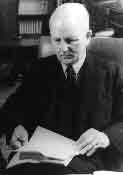
The Soviet Russian Chargé called on me this morning at my request. I designated as our subject of conversation the Soviet Russian request to continue accrediting their trade mission in Prague as a branch Office of the trade mission in Berlin. In my subsequent remarks, which the Chargé interrupted by occasional objections, I adhered strictly to the instructions given to me.
First, I told the Chargé that the request of the Russian Government involved a matter of principle, and that for this reason the Foreign Minister had dealt with it. Herr von Ribbentrop had presented the matter to the Fuhrer. At this point the attention of the Chargé was aroused, and he made sure by asking me again whether the Fuhrer had really dealt with the matter. I then continued that we would like to know whether the trade mission in Prague was to be retained permanently or only temporarily, and for what length of time. To this the Chargé immediately replied that he personally could only state that there was still much work to be done in order to complete current business in the Protectorate, but that his Government had probably been thinking of a permanent status. In accordance with instructions I then went on to state that it would not be easy for us to give our consent to the retention of the trade mission in Prague, because we, i. e., Ambassador Count Schulenburg, had recently received from Herr Molotov a not very encouraging reply in the matter of our economic relations.
The Chargé indicated that he was informed of the contents of the talk, and pending more detailed instructions interpreted it to the effect that in Moscow they wanted to avoid a repetition of what happened last January, i. e., they did not want to make preparations again for the trip of a German trade negotiator to Moscow only to receive a cancellation at the last moment, amidst the ridicule of the foreign press. Actually, Herr Molotov had stated that politics and economy could not be entirely separated in our relations; a certain connection between the two did actually exist. Apparently Potemkin in his communication to the Chargé here expressed the matter this way: that the contemplated trade negotiations could not be treated lightly.
After we had exchanged a few more words to clarify the incident of last January, I told the Chargé that I agreed with him that economics and politics could not be entirely separated from each other. 1t was for this very reason that I was having the conversation with him, because the British efforts to draw Russia into her sphere: efforts of which we were informed-indicated a political orientation in Moscow of which we would have to take account, even in considering less important problems, such as the Soviet Russian trade mission in Prague.
I returned therefore to the question raised at the beginning of our conversation-namely, what length of time the Soviet Government would propose for the business of its trade mission in Prague. The Chargé concluded from this part of the conversation that he would have to inquire again in Moscow as to what intentions they actually had for the trade mission in Prague and, furthermore, what Foreign Commissar Molotov actually meant to tell Count Schulenburg. The Chargé was willing to say on his own account that Herr Molotov had, to be sure, talked with the customary Russian distrust, but not with the intention of barring further German-Russian discussions.
After the discussion had reached this point I reminded the Chargé of certain conversations which he himself had conducted in the Office and above all of the statements of his Ambassador, now absent from Berlin, who told me in the middle of April of the possibility of a normalization and even further improvement of German-Russian political relations. From this point the conversation proceeded spontaneously and I changed over to a purely conversational tone and put aside paper and pencil. I here reminded the Chargé of the remarks of his Ambassador about the more reserved language of the press on both sides in the last few months. I mentioned that to my knowledge the topic of Soviet Russia had receded into the background in official German speeches of recent months-which the Chargé confirmed but held that it could be interpreted in different ways.
Finally I told the Chargé that the development of our relations with Poland, which was known to him, had actually made our hitherto restricted policy in the East freer. After some concurring remarks by the Chargé, I told him that personally thought the German position toward Soviet Russia was as follows: Germany was not narrow-minded, but she was not officious either. Among our German political merchandise, however, one item did not exist, namely a special liking for Communism. We had dealt with Communists in short order and we would continue to do so; moreover, we did not expect any special liking for National Socialism in Moscow either.
At this point the Chargé interrupted with explanations as to how Russian relations with Italy and particularly Turkey, as well as other countries could be normal or even very good, although in those countries Communism was not favored at all. He strongly emphasized the possibility of a very clear distinction between maxims of domestic policy on the one hand and orientation of foreign policy on the other hand.
I then continued with my figure of speech and stated that among our political merchandise there was also a pretty good selection for Russia, ranging from normalization of our relations such as the Russian Ambassador had suggested to me, to unrelenting hostility. Normalization was indeed obstructed by a lot of rubble and I was convinced that many people would even like to pile it higher. The Chargé probably knew that Herr Beck, the Polish Foreign Minister, was also not entirely without his share in this. One could conduct interesting talks with Herr Beck, but he appeared to me to have become a little old, because he sometimes suffered from a regrettable weakness of memory. Thus, for instance, Beck's interpretation of the German policy toward the Ukraine was refuted by the German conduct in the case of the Carpathian Ukraine.
However, I did not want to go into these things in detail; I thought that Germany had proved that she could cope with Communism at home; nor did she have any fear in foreign policy. I did not know whether there still was any room at all for a possible gradual normalization of relations between Soviet Russia and Germany, now that Moscow had perhaps already listened to the enticements of London.
At any rate, however, since the Chargé and his Ambassador had talked so frankly in the Foreign Ministry, I would like to spare myself the reproach that we on our part had held back and had concealed our position. We did not ask anything from Moscow, we did not desire anything from Moscow, but neither did we want to be told by Moscow at a later date that we had erected between us an impenetrable wall of silence.
The Chargé, who had followed the talk attentively and had contributed to it a number of remarks not mentioned here, stated in conclusion that the ideological barrier between Moscow and Berlin was in reality erected by us. Before our treaty with Poland we had rejected Russian offer of alliance and until recently there had been little comprehension here of the Russian thesis that foreign and domestic policy did not have to interfere with each other. He believed that his Government had not wavered in this viewpoint and was still faithful to it today. In conclusion the Chargé stated that he would report home about our talk, the second part of which he designated, for his part, as private, and he would request instructions from his Government as to what its real aims were concerning the trade mission in Prague, as well as whether he, the Chargé, had correctly interpreted the Molotov talk as in no way negative [keineswegs zurückweisendes].
I did not, of course, ask the Chargé about the state of the Anglo-Russian negotiations; nor did he mention anything about them. However, it cannot be contested that in his remarks today about our political relations he used basically the same language as hitherto and as his Ambassador did in the middle of last April. The Molotov-Schulenburg episode appears to me, therefore, to have been the product of sensitivity and distrust rather than a premeditated rejection.
1940 World War II: Dunkirk: German panzer forces begin to withdraw from the line at Dunkirk and move to take up positions further to the south. During the next three days, 185,000 men (more than half of the total number evacuated from Dunkirk) will escape. From the diary of General Franz Halder:
Bad weather has grounded the Luftwaffe and now we must stand by and watch countless thousands of the enemy getting away to England under our noses.
[See: What Were Adolf Hitler's Major Blunders?]1941 World War II: Various:
Rudolf Hess: British captors assign Estonian-born psychiatrist Dr. Henry Victor Dicks to pose as Hess's physician. Dicks, a Jew who wrote that he despised Hess on sight, reports directly to British intelligence. (THP)
Crete is captured by Germany.
North Africa: From official notes of the German naval war staff: "Duce demands urgently decisive offensive Egypt-Suez for fall 1941; 12 divisions needed for that. ' This stroke would be more deadly to the British Empire than the capture of London; Chief, Naval Operations, agrees completely.' "
[See: The Mediterranean Strategy.]1942 World War II: Operation Millennium: British bomb Cologne:
On this day in 1942, a thousand-plane raid on the German city of Cologne is launched by Great Britain. Almost 1,500 tons of bombs rain down in 90 minutes, delivering a devastating blow to the Germans' medieval city as well as its morale.
Air Marshal A.T. (later Sir Arthur) Harris, commander in chief of the Bomber Command, planned Operation Millennium. It was his goal to prevent significant losses of Royal Air Force bombers by concentrating air attacks in massive bomber raids, overwhelming the enemy by numbers, and delivering decisive, crippling blows. Harris would need to beef up the relatively small number of 416 "first line" aircraft needed, though; to those he had to add second-line and training squadron bombers, thus creating an aircraft force of 1,046.
On the night of May 30, Cologne was besieged: 600 acres of the city sustained heavy damage, 45,000 Germans were left homeless, and 469 were killed. The chemical and machine tool industries, the main targets of the raid, were rendered useless. The cost to the British: 40 bombers, or less than 4 percent of the total that participated.
British Prime Minister Winston Churchill, who approved the raid, telegraphed President Franklin Roosevelt the next day: "I hope you were pleased with our mass air attack... there is plenty more to come." (History.com)
1943 Various:
Auschwitz: SS Dr. Josef Mengele performs his first duties:
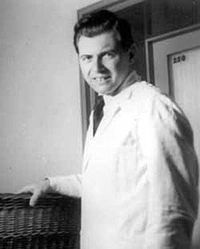
His first act at Auschwitz is to send those Gypsies who are suspected of suffering from typhoid to the gas chambers. He has been persuaded to ask for this position by Professor Otmar von Verschuer, one of Europe's most eminent geneticists and a pioneer in hereditary biology at the Frankfurt University Institute for Hereditary Biology and Racial Purity. Verschuer's institute agreed to fund Mengele's experiments if Mengele in return would send his results and specimens to the institute "for further study." Mengele was a former assistant to Professor von Verschuer and a visiting scientist in Verschuer's Kaiser Wilhelm Institute of Anthropology in Berlin-Dahlem. (THP) [For further details, Click here.]>/p>
War against Japan: The Aleutian islands of Kiska and Attu off the coast of Alaska, are retaken from Japanese forces by the US Army. [For further details, Click here.]
1944 World War II: From a circular letter written by Reichsleiter Martin Bormann:

Several instances have occurred where members of the crews of such aircraft, who have bailed out or who have made forced landings, were lynched on the spot immediately after capture by the populace, which was incensed to the highest degree. No police measures or criminal proceedings were invoked against the German civilians who participated in these incidents.
1946 Nuremberg Tribunal: Fritz Sauckel continues his testimony:

I personally have never approved of the statements made by some of the National Socialist speakers about a superior race and a master race. I have never advocated that. As a young man I traveled about the world. I traveled in Australia and in America, and I met families who belong to the happiest memories of my life. But I loved my own people and sought, I admit, equality of rights for them; and I have always stood for that. I have never believed in the superiority of one particular race, but I always held that equality of rights was necessary. [For Sauckel's full testimony, Click here.]
1958 Unknown soldiers: WWII and Korean War:
Two unknown American servicemen, one of World War II and one of the Korean war, were borne to their final resting places today in Arlington National Cemetery. Here on the grassy plaza, overlooking the Potomac Valley, uniformed pallbearers of all the military services laid the two bronze coffins beside the Tomb of the Unknown Soldier of World War I. [For further information, click here.]
1968 Wunderwaffen: Wernher von Braun, hard at work on the US Space Program, writes to R. W. Reid:
With the tight press censorship imposed by Hitler, the abuses of his regime were not nearly as visible to the average German as they were to an outsider who had free access to the international news media. For this reason, I must say, more by way of a statement than as an apology, that I never realized the depth of the abyss of Hitler's régime until very late and particularly after the war, when all these terrible abuses were first published.
I guess until about a year before the war's end I shared the feelings of most Germans that while Hitler was unquestionably an aggressor and a conqueror, that this put him more in a class with Napoleon than with the devil incarnate. While right from the beginning I deeply deplored the war and the misery and suffering it spread all over the world, I found myself caught in a maelstrom in which I simply felt that, like it or not, it was my duty to work for my country at war.
1982 NATO: Spain becomes NATO's 16th member. (AP)
1990 Gorbachev arrives in Washington for summit:

Soviet leader Mikhail Gorbachev arrives in Washington, D.C., for three days of talks with President George Bush. The summit meeting centered on the issue of Germany and its place in a changing Europe. . . . The Gorbachev-Bush summit ended after three days with no clear agreement on the future of Germany. Russia’s pressing economic needs, however, soon led to a breakthrough. In July 1990, Bush promised Gorbachev a large economic aid package and vowed that the German army would remain relatively small. The Soviet leader dropped his opposition to German membership in NATO. In October 1990, East and West Germany formally reunified and shortly thereafter joined NATO. [For further information, click here.]
Edited by Levi Bookin (Copy editor)
levi.bookin@gmail.com



Click to join 3rdReichStudies

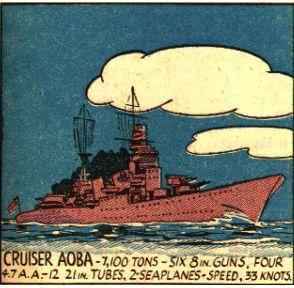
Disclaimer: This site includes diverse and controversial materials—such as excerpts from the writings of racists and anti-Semites—so that its readers can learn the nature and extent of hate and anti-Semitic discourse. It is our sincere belief that only the informed citizen can prevail over the ignorance of Racialist "thought." Far from approving these writings, this site condemns racism in all of its forms and manifestations.
Fair Use Notice: This site may contain copyrighted material the use of which has not always been specifically authorized by the copyright owner. We are making such material available in our efforts to advance understanding of historical, political, human rights, economic, democracy, scientific, environmental, and social justice issues, etc. We believe this constitutes a "fair use" of any such copyrighted material as provided for in section 107 of the US Copyright Law. In accordance with Title 17 U.S.C. Section 107, the material on this site is distributed without profit to those who have expressed a prior interest in receiving the included information for research and educational purposes. If you wish to use copyrighted material from this site for purposes of your own that go beyond 'fair use', you must obtain permission from the copyright owner.
Please Note: The list-owner and moderators of 3rdReichStudies are not responsible for, and do not necessarily approve of, the random ads placed on our pages by our web server. They are, unfortunately, the price one pays for a 'free' website.